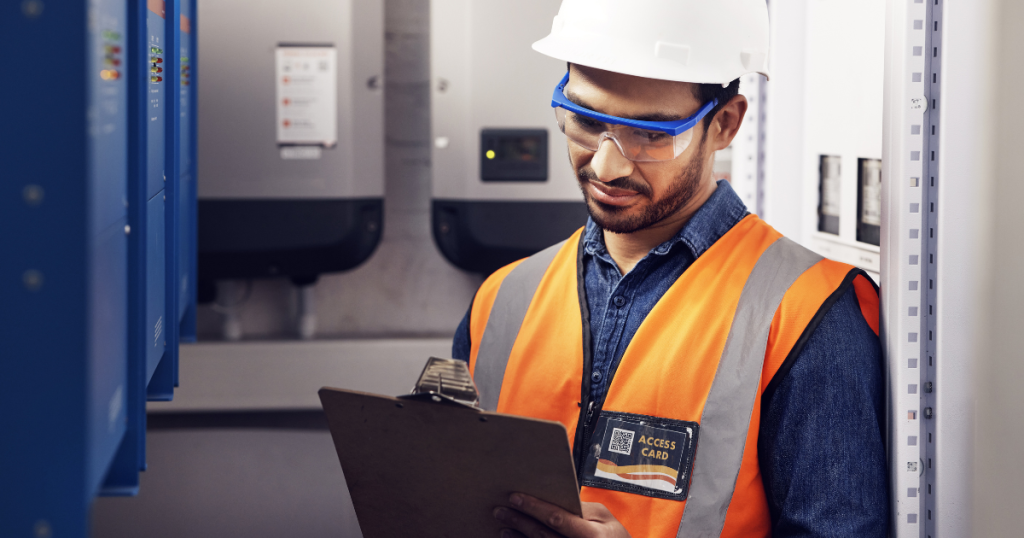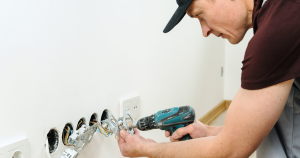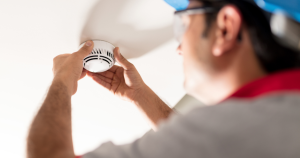Regularly checking the electrical system of a house or business is essential for ensuring its safety and reliability. An electrical inspection checklist ensures that the entire system and major appliances are thoroughly assessed for any possible hazards or deficiencies.
Today, businesses must also conduct regular inspections to ensure the safety of their customers and employees.
It is essential to hire a licensed and insured electrician to inspect your system according to safety standards and mitigate any potential risks.
This article discusses a sample safety inspection checklist that residential and commercial owners can use and follow with the help of a licensed electrician. Keep reading below.
Residential Electrical Inspection Checklist
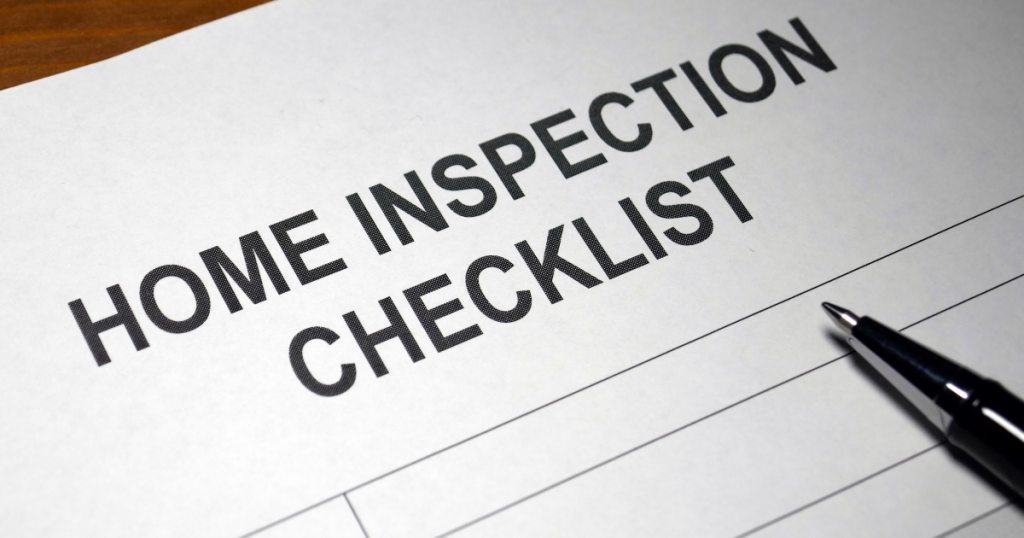
As a homeowner, you must ensure the safety of your electrical system, before even consulting an expert for inspection purposes.
While it is best to trust in the hands of professional electricians, you can still perform basic residential electrical maintenance to identify any immediate concerns for your electrical system.
Here are the key areas to assess:
Wires and Outlets:
- Are all wires properly covered to prevent exposed wiring?
- Do all outlets and light switches function properly, with no buzzing/crackling noises, broken covers, or discoloration?
- Do the outlets feel cool to the touch?
- Are all wires free of damage, such as frayed or broken parts?
- Are there any cords that could be pinched by doors, windows, or furniture?
- Are the cords free of nails or staples?
- Do you use surge protectors to safeguard electronic devices?
Lighting:
- Do all lightbulbs have the appropriate wattage for each fixture?
- Is there a safe gap between lamps/light fixtures and combustible objects?
- Is there a problem with lights dimming or flickering frequently?
- Have the light fixtures been replaced or upgraded as needed?
Electrical Panel:
- Is the electrical panel up to date?
- Is the electrical panel’s cover cool to the touch?
- Are there any tripped circuits?
- Is surge suppression implemented throughout the home to protect against power surges?
[Related: The Ultimate Guide on How to Upgrade Electrical Panel]
Appliances:
- Are unused appliances unplugged to avoid wasting electricity?
- Are all appliances in good functioning order?
- Are major appliances (such as the refrigerator or stove) plugged directly into wall outlets?
Electrical Fires:
- Is at least one multi-purpose fire extinguisher readily available inside the house?
- Are all smoke detectors and carbon monoxide alarms working properly?
- Are flammable goods stored away from electrical appliances and lights?
- Is there an emergency plan in place in case of a fire?
Outdoors:
- Are all exterior electrical outlets free of debris and obstructions, and are they appropriately secured with weatherproof safety covers?
- Are cords used specifically designed for outdoor use?
- If there is electrical equipment near water (e.g., swimming pool or hot tub), is it properly protected and plugged into Ground Fault Circuit Interrupter (GFCI) outlets?
Note that this checklist serves only as an initial assessment; to fully ensure the safety of your residential electrical system it is wise to seek professional services from a licensed electrician.
Commercial Electrical Inspection Checklist
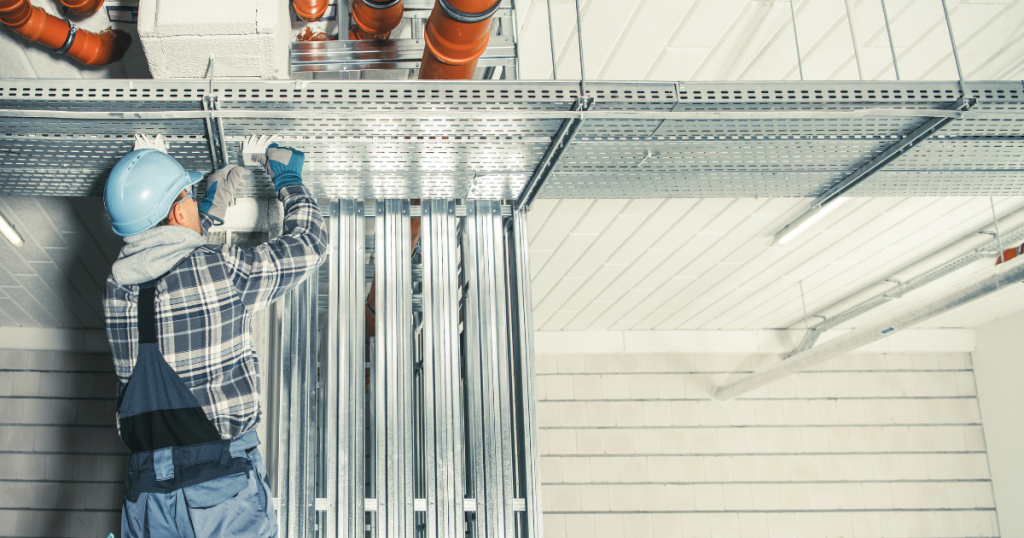
Electrical inspections for commercial properties are essential in meeting the safety requirements outlined by the National Electrical Code (NEC).
Below are the main areas typically reviewed during a commercial electrical inspection:
NEC Compliance:
- Are the installations up to NEC standards?
- Are installation instructions followed, and are materials and equipment appropriately labeled?
Current Ratings and Openings:
- Do the interrupting current and short-circuit current ratings meet acceptable levels for the installation’s conditions?
- Are all vacant spaces properly closed?
Contamination and Damage:
- Is there any contamination as a result of using foreign materials?
- Is there anything that needs to be repaired or replaced?
Mounting and Ventilation:
- Are electrical components appropriately installed and ventilated?
Terminations and Splices:
- Do terminations and splices have the required temperature, usage, and electrical ratings?
- Are there adequate enclosure markers and ratings in the surrounding environment?
Clearances and Directories:
- Is there sufficient headroom and operating clearance around the equipment?
- Are circuit directories for switchboards, panel boards, and other comparable equipment available?
In addition to these general areas, specific categories within the NEC may be included, such as:
- Wiring methods and devices
- Services
- Feeders
- Branch circuits
- Grounding and bonding
- Dwelling units
- Special occupancies
- Emergency standby systems
- Fire pumps
While these questions give a general framework for commercial electrical inspections, the specifics may vary depending on local legislation and the type of electrical installation in your business. It’s always a good idea to obtain professional advice to ensure that you’re following all local codes and regulations.
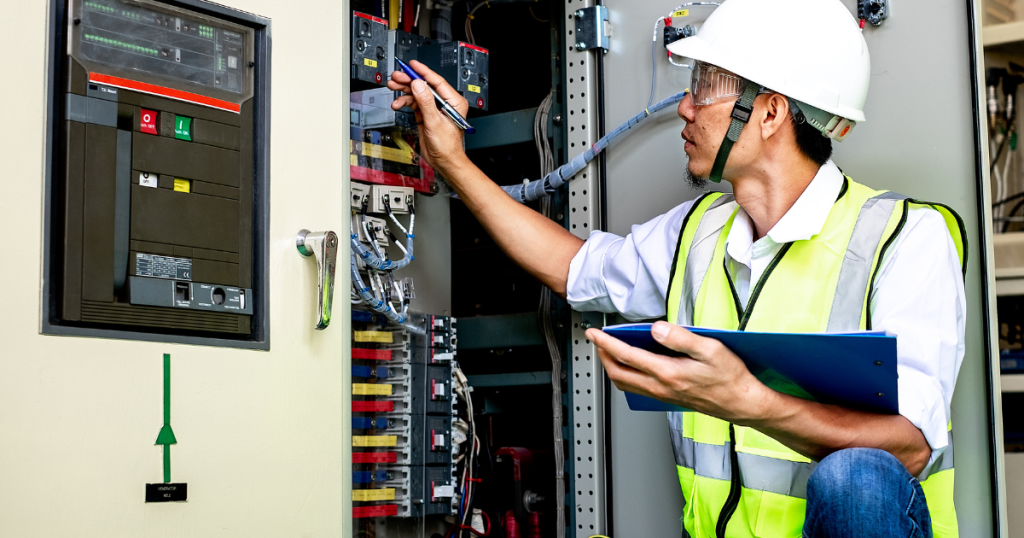
FAQs About Electrical Inspection Procedure
How do you inspect electrical wiring at home?
Inspecting electrical wiring at home should be done with caution, and it is usually best to call a professional electrician for a thorough check. However, here are some general steps you can take to visually evaluate your home’s electrical wiring:
- Turn off the power supply in the area you’ll be investigating to ensure your safety.
- Look for exposed wires or cables that are not adequately covered.
- Examine outlets and switches for damage, such as cracks or loose connections.
- Inspect visible wires for fraying, cracking, or other signs of deterioration.
- Check that junction boxes are properly covered and that there are no exposed cables or loose connections.
- Check for hot spots by touching plugs, switches, and electrical panels.
- If you see any burning odors, sparks, or electrical arcing, immediately turn off the power and consult a certified electrician.
What are the benefits of electrical safety inspections?
Regular electrical inspections conducted by licensed electricians offer several important benefits for homeowners. Here are five key advantages:
- Enhanced safety
- Prevention of electrical hazards and fire emergencies
- Early problem detection
- Compliance with national and local electrical safety codes
- Peace of mind
‘
[Related: 7 Home Wiring Safety Checks Homeowners Should Do Yearly]
Take Charge of Electrical Safety: Book Your Inspection Today!
Regular electrical inspections are an integral component of protecting both homes and businesses from electrical hazards. Using an inspection checklist enables you to easily detect potential risks quickly and address them appropriately.
Electrical inspections must be carried out by certified and insured electricians who will carefully follow a checklist to reduce potential risks.
At Assurance Electrical, our focus is providing electrical inspection services in Prescott and its surrounding communities. You can reach out to our knowledgeable electricians to perform detailed checks that guarantee your electrical system meets the highest safety standards.
We would love to hear from you! What other things do you check when inspecting your electrical system? Are there any additional tips or thoughts you would like to share? Please leave your comments below and let’s start a conversation about electrical safety.
Jeff Brandlin is the founder of Assurance Electrical Services, LLC. He started in the electrical industry when he was 21 and had worked in several electrical firms before founding Assurance Electrical. Jeff is dedicated to providing the best quality service to his clients and always puts their needs first. Outside work, Jeff enjoys spending time with his wife and children.
-
Jeff Brandlinhttps://assuranceelectricalaz.com/author/assuranceelectricalservices/
-
Jeff Brandlinhttps://assuranceelectricalaz.com/author/assuranceelectricalservices/
-
Jeff Brandlinhttps://assuranceelectricalaz.com/author/assuranceelectricalservices/
-
Jeff Brandlinhttps://assuranceelectricalaz.com/author/assuranceelectricalservices/

